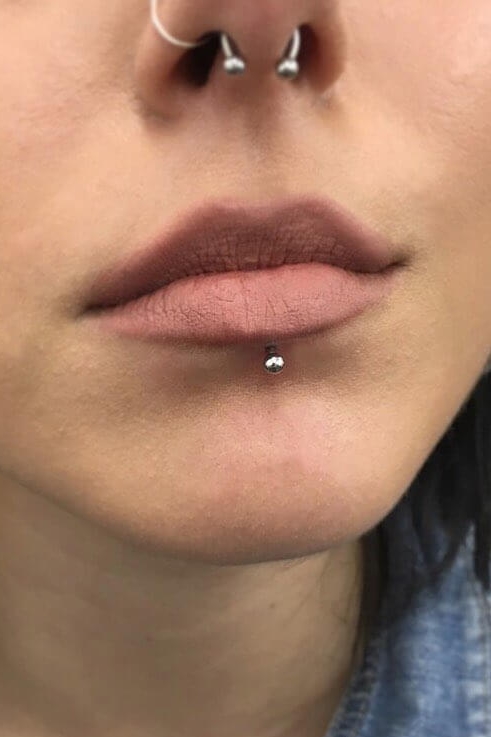Tongue Piercing Aftercare Guide
- Given that it heals in about 3 to 6 months, take good care of your piercing and follow the aftercare instructions.
- Keeping good oral hygiene practices is important in maintaining a healthy mouth and piercing. You will want to floss, brush and use mouth rinse at least twice a day. It is vital to not overuse the mouth rinse.
- Throughout your initial healing period, spray the prescribed saline solution 2 to 3 times daily without stopping.
- Stay away from standing water for a min period of 45 days (like sea, swimming pools, lakes, and baths).
- During the early few weeks, swelling will be present. Allow little ice cubes to dissolve in your mouth. This will minimize swelling and improve blood circulation.
- During the early few weeks, swelling will be present. Avoid speaking or moving your jewelry more than required.
- Sleep with your head elevated above your heart during the first few nights.
- Jewelry should never be moved or rotated during the healing process as this will just make things more difficult. It is also not advised to take any actions that may hinder the healing process.
- Be sure to rinse your piercing thoroughly with warm water once a day. Then rinse with saline.
- Have a piercer confirm that the piercing has fully healed before stopping aftercare practices.

Tips & Tricks
- Under no circumstances should you take off your jewelry during the healing process because doing so increases the risk of losing the piercing, and putting it back is not the solution.
- Wash your hands thoroughly prior to cleaning or touching your piercing for any reason. Rinse with water (bottled or filtered) thoroughly after every time you eat, drink or smoke. Gently brush the jewelry with a clean toothbrush regularly to avoid plaque build up. Always begin with a light piece of jewelry.
- Once the swelling has subsided, it is vital to replace the original, longer jewelry with a shorter post or barbell to avoid damage to the teeth and gums.
- Best thing that you can do for your piercing is DO NOT TOUCH IT.
- The first jewelry change should be performed by a qualified piercer.
- Keep in mind that stress, bad diet, drug addiction, or illness might lead to a prolonged recovery period or other challenges.
What to Avoid
- Avoid eating spicy, salty, acidic, or hot temperature foods or beverages for the first two weeks (no specific foods need to be avoided).
- Do not play with your jewelry. Long term effects include permanent damage to teeth and gums.
- Avoid using mouthwash containing alcohol or hydrogen peroxide. It can irritate the piercing and delay healing.
- Do not use contact solution, eye drops, or nasal rinse products on your piercing.
- Avoid chewing on tobacco, gum, fingernails, pencils, sunglasses, and other foreign objects that could harbor bacteria. Avoid submerging healing piercings in bodies of water such as lakes, pools, oceans, and even the bathtub.
- Minimize the intake of smoking and vaping (tobacco or cannabis). It increases risks and prolongs healing time.
- Avoid tea tree oil and any other products that your friends or social media have recommended.
Downsizing
Downsizing jewelry is also necessary for a piercing to heal properly; this involves removing the long post and replacing it with a shorter one based on tissue inflammation and swelling. This can be done 25-45 days after the piercing. This period varies from person to person, as does the aftercare for the piercing. In case of lips piercings downsizing charges are 50AED every piece of jewelry if it is titanium. If it is our made gold jewelry then, it is free since we remove the lengthy back and replace it with shorter backs. In case of tongue, smiley, tongue web, or cheek dimple piercings, you need to purchase the whole jewelry with shorter length, we will replace it with zero fitting charges.

